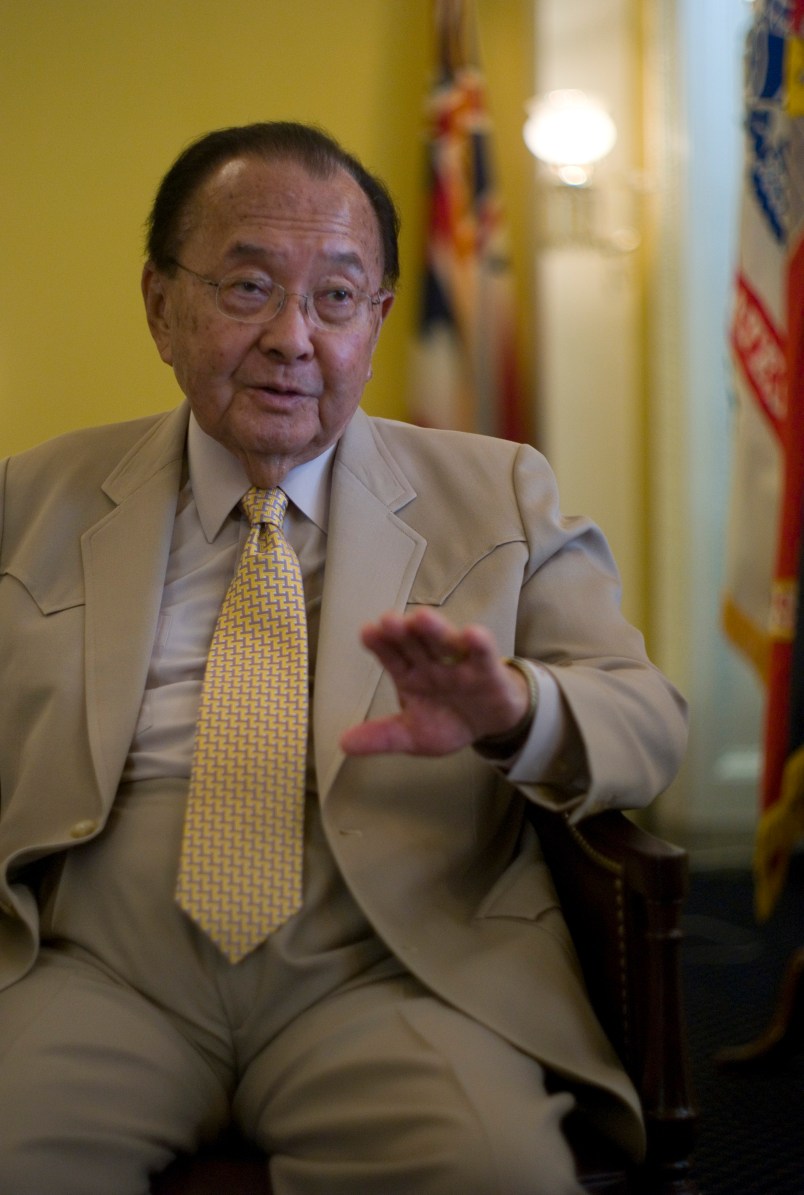Senate Appropriations chair Daniel Inouye (D-HI) says that the days of earmarking in spending bills are over, thanks to the Republican ban on the practice in the House and President Obama’s unwillingness to support earmarks in the future.
In what could amount to be a big political victory for the White House, Inouye told his colleagues in the Senate Tuesday not to bother sending him their requests for earmarks. A notorious earmarker himself, Inouye said that there just wasn’t any point in trying to continue earmarking after Obama so vehemently turned on the practice in his State of the Union address earlier this month.
“The handwriting is clearly on the wall,” Inouye, a Hawaii Democrat, said in a statement. “The President has stated unequivocally that he will veto any legislation containing earmarks, and the House will not pass any bills that contain them. Given the reality before us, it makes no sense to accept earmark requests that have no chance of being enacted into law.”
Senate Majority Leader Harry Reid had vowed to fight Obama on earmarks, calling them an important power of the legislative branch. But now it seems that Inouye — who has a measure of control from his perch atop the powerful Appropriations Committee — has cried uncle in the wake of so much pressure on earmarking, so a clash between Obama and the Democratic Senate over earmarking is unlikely to occur.
Inouye is one of the Senate’s most skilled earmarkers, and though he said he was giving up the practice, it was clear he was doing it under duress.
“I continue to support the Constitutional right of members of Congress to direct investments to their states and districts under the fiscally responsible and transparent earmarking process that we have established,” he said in the statement before telling his colleagues not to bother sending earmarks anymore.
Taxpayers for Common Sense, a budget watchdog group opposed to earmarks, hailed the move — but cautioned that how serious the ban may be remains to be seen. In his statement announcing the ban, Inouye said that a definition of what an earmark is — i.e. the thing that Senators should no long send his committee — will be forthcoming. Inouye said he will base his definition of earmark on the existing Senate rules regarding the practice, and a spokesman for the Appropriations Committee told TPM the final definition has not yet been delivered to Senate offices on Capitol Hill.
“We will have to see exactly how that is applied,” Taxpayers For Common Sense Vice President Steve Ellis said in a statement. “The Committee Chairman (or Majority Leader) is the final arbiter as to what is or is not earmark. TCS has not always agreed with their definition.”
But TCS president Ryan Alexander said Inouye’s letter is a good first step toward comprehensive budget reform.
“A one-two punch from Congressional Republicans and the President has brought an end to earmarks – at least temporarily,” she said. “Now it’s time for the President and Congress to roll up their collective sleeves and design the transparent, merit-based, competitive, and formula systems to make responsible spending decisions.”
The House banned earmarking after the Republicans took over and the Senate GOP (some reluctantly) followed suit shortly thereafter.
For his part, Inouye said the new ban wasn’t the end to earmarking forever.
“Next year, when the consequences of this decision are fully understood by the members of this body, we will most certainly revisit this issue and explore ways to improve the earmarking process,” he said. “At the appropriate time, I will once again urge the Senate to consider a transparent and fair earmark process that protects our rights as legislators to answer the petitions of our constituents, regardless of what the President or some Federal bureaucrat thinks is right.”









